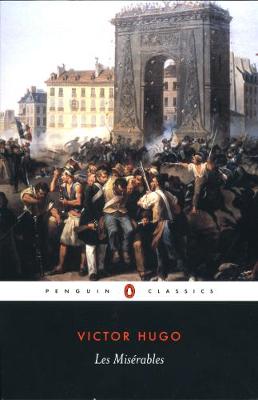Reviewed by Michael @ Knowledge Lost on
That is a very brief outline of what this book is about, as the book is about 1400 pages. If I tried to go into more detail it could be too big for a one paragraph synopsis, but I think people are familiar enough with this novel to know the basic plot of this book. I decided to read the book because of the recent adaption; yes I know it was an adaptation of the musical but I still wanted to read the book first so I’d have a better understanding of the plot.
This novel covers some very interesting topics from the nature of the law and the idea of grace, politics, justice, romance and moral philosophy. All this weaved into the plot but then you find yourself reading huge chunks of text outlining the battle of Waterloo, religion, the construction of the Paris sewers and urban design of Paris. These digressions really threw me off with the book and honestly think that if the editor removed them, the book would have been more accessible and readable.
There is a lot to offer within the book and I would say I could easily read it again (not now but in the future) and explore the sense of compassion and love that is in this book. It’s a heart breaking story but I will admit I cried more in the adaptation than I did in the book. I know I haven’t mentioned the French Revolution which is a huge part of this book, but it really is hard to review a book that is so packed with ideas and still cover the plot points as well.
While this book did take a while to get through and at times I was struggling to enjoy it. In the end I found this to be worth the journey. Now that I’ve also seen the most recent movie adaptation I would probably recommend people just watch that. But if you are interested in digesting a book this size and exploring the ideas it raises or you just love to read great literature then make sure Les Misérables is on your to-read list.
This review appeared originally on my blog; http://literary-exploration.com/2013/02/14/book-review-les-miserables/
Reading updates
- Started reading
- 12 December, 2012: Finished reading
- 12 December, 2012: Reviewed
